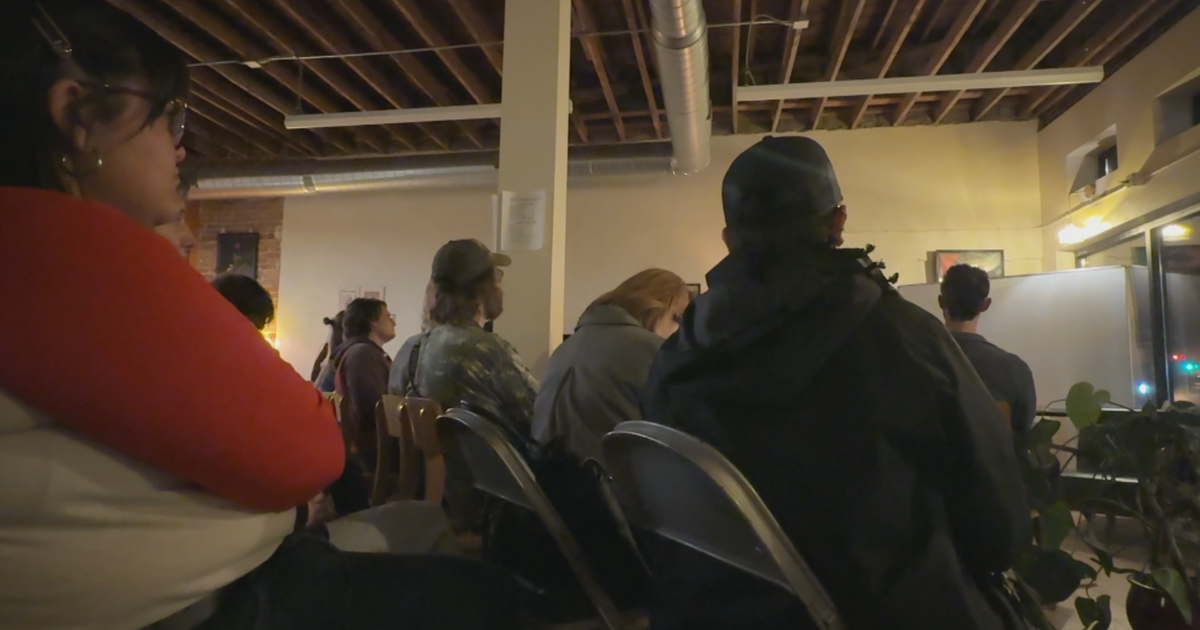2012 Hopefuls Tread Carefully On Ryan Budget
WASHINGTON (AP) -- Mindful of the political risks, Republican presidential hopefuls treaded gingerly -- or ducked -- as House Republicans unveiled a budget plan that would slash federal spending by about $5 trillion over 10 years while revamping health programs for the elderly and poor.
Several, including former Minnesota Gov. Tim Pawlenty, praised the budget's sponsor, Wisconsin Rep. Paul Ryan, but stopped short of fully endorsing the blueprint and didn't indicate whether they backed the massive changes in Medicare and Medicaid. Others were silent on the plan, including two Republicans who rarely pass up opportunities to inject themselves into the latest national debate: former House Speaker Newt Gingrich and Minnesota Rep. Michele Bachmann.
There's a reason none was eager to talk about it: The plan, unveiled Tuesday, could rile a pivotal constituency, millions of senior citizens who depend on the government-run health care programs. Also, the proposal is unlikely to be passed without changes; it's simply the starting point of a long fight over the budget for next federal fiscal year, which begins in October.
Even former Arkansas Gov. Mike Huckabee acknowledged the document was a starting point.
"It's doubtful the House's proposal will be passed in its current form and it's unlikely that this one proposal will be the ultimate solution to all of our economic problems," Huckabee said on his blog. "But Congressman Ryan's proposal is certainly a start -- one that I support as a small step to restoring fiscal sanity and reducing the size of government."
Still, the contenders had little choice but to say something. Ignoring it altogether could anger conservative voters and tea party activists pressing for less spending and smaller government, constituencies GOP hopefuls need to court. The likely candidates are all but certain to be asked about the proposal as they campaign in the early nominating states; GOP primary voters in Iowa, New Hampshire and South Carolina -- who take their jobs of vetting candidates seriously -- will demand specific answers.
But specifics were hard to come by Tuesday.
"Rep. Ryan's budget recognizes the problem with government: too much spending without fiscal responsibility," Mississippi Gov. Haley Barbour, who is likely to enter the presidential race in the coming weeks, said in a Twitter message.
He did not elaborate.
Mitt Romney, the former Massachusetts governor expected to make a second White House run, was almost as brief in a statement. It was sent only to reporters who inquired about his position.
"I applaud Rep. Paul Ryan for recognizing the looming financial crisis that faces our nation and for the creative and bold thinking that he brings to the debate. He is setting the right tone for finally getting spending and entitlements under control," Romney said.
But does he back the approach? Romney pointed to his 300-page book for a detailed version of how he would govern.
Pawlenty released a statement on the plan before House Republicans unveiled it at a news conference. He called Ryan a leader -- and then took the opportunity to bash the Democrat he hopes to challenge, saying, "President Obama has failed to lead and make tough choices his entire time in the White House."
Former Alaska Gov. Sarah Palin weighed in with a Twitter posting: "There is hope! Serious & necessary leadership rolls out serious & necessary reform proposal. Good start." She directed readers to a column she wrote in December that praised Ryan.
Only former Pennsylvania Sen. Rick Santorum seemed willing to embrace the plan.
But he, too, only focused on part of it, saying, "The Republicans' approach to reforming Medicare is right on target to streamline the program, reduce waste and allow future Medicare beneficiaries to have more of a say in the needs of their benefits with a market."
Ryan's plan would convert the traditional health plan for older Americans into a system in which the government would pay for private health insurance plans. The traditional Medicare program directly pays doctors and hospitals. The revision is a nonstarter for many older Americans who see any change to such government programs as unacceptable.
(© Copyright 2011 The Associated Press. All Rights Reserved. This material may not be published, broadcast, rewritten or redistributed.)







